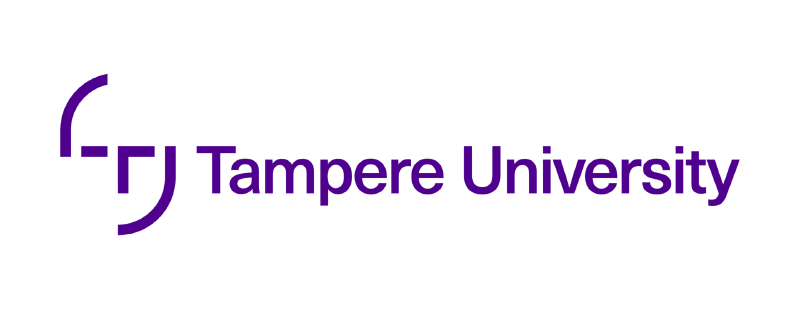
Tampere University
- Country Finland
- Founded In 2019
- University Type Public
- Total Students 6000+
- Phone Number +3582945211
- Email [email protected]
- ZIP Code 33100
- Website https://www.tuni.fi/en
- International Students 134
- Size of Campus 134
- Male Female Ratio 0
- Faculty Student Ratio 0
Home
Tampere University of Applied Sciences (TAMK) is one of the largest and most popular universities of applied sciences in Finland. Our strengths are multidisciplinary education, creativity, and a strong international dimension. TAMK is a higher education institution oriented towards working life and RDI co-operation.
Location
Programs
All Courses offered
Bachelor's in Sustainable Urban Development- Administrative Sciences
Full Time Finland
Duration
36 month
1st Year Tuition Fees
EUR 10000
Exams Accepted
TOEFL, IELTS
Bachelor's in Sustainable Urban Development- Technology
Full Time Finland
Duration
36 month
1st Year Tuition Fees
EUR 10000
Exams Accepted
TOEFL, IELTS
Bachelor's in Sustainable Urban Development- Social Sciences
Full Time Finland
Duration
36 month
1st Year Tuition Fees
EUR 10000
Exams Accepted
TOEFL, IELTS
Bachelor's in Science and Engineering- Computing and Electrical Engineering
Full Time Finland
Duration
36 month
1st Year Tuition Fees
EUR 10000
Exams Accepted
TOEFL, IELTS
Bachelor's in Science and Engineering- Natural Sciences and Mathematics
Full Time Finland
Duration
36 month
1st Year Tuition Fees
EUR 10000
Exams Accepted
TOEFL, IELTS
Gallery


Ranking
| Ranking | From | Year | Type |
|---|---|---|---|
| 415 | QS | 2024 | Public |
Accerediations
TAMK
Accomodation
Tampere universities do not own student dormitories nor are there any on-campus dormitories in Tampere. The main student housing providers for students is Tampere Student Housing Foundation (TOAS). TOAS offers high-quality dorm rooms at a student-friendly price including free internet and other fairly priced services (car sharing, car park, TOAS gyms).
Accomodation Website:
https://www.tuni.fi/en/study-with-us/student-life/student-housingPlacement
When thinking about a suitable place for the internship, consider your own goals for the placement and what you may gain from it. Make finding a internship that interests you your starting point.
You may want to consider eg the following:
- What skills and knowledge have you already mastered and which of them do you want to use in the internship?
- In what kind of an environment and for what kind of an employer do you want to work?
- What kind of tasks do you find meaningful? What kind of things are important to you? What kind of things would you like to work on?
- What skills and competences do you want to develop in particular, or are there areas of work that you would like to explore in more detail (eg communication, doing research and surveys, management tasks, customer interaction etc.)?
Also, take a look at the learning outcomes and guidelines for the internship in your degree programme. Before you start your internship, it is a good idea to write a internship plan that includes, for example, what you expect from your future internship and what you are trying to achieve while doing it. You can return to your plan during your internship, for example with the supervisor assigned to you at the workplace. Reflecting on your own goals before the internship also supports writing the internship report afterwards.
Interns work in a variety of positions for various employers
Applying for a internship placement is also part of the internship process. Reflecting on one’s skills and goals and getting used to communicating about them also provides competences for job searching after graduation. Thoughts about potential jobs and employers started during the internship will also help you to map out your options after graduation. Look at different options curiously and boldly - the possibilities are usually much wider than you might think at first!
The internship may be found in a company, municipality, government office or organisation in Finland or abroad. You can also think more closely about what types of tasks would make your goals, dreams and skills meet. Trainees work in a variety of roles, including:
- doing studies and writing reports
- customer interaction
- undertaking client or user surveys
- information search, analysis and reporting
- producing, editing and proof-reading written materials
- communications
- producing content for a website
- event planning
- planning education and producing educational materials
- training
- participation in projects
- taking care of international contacts
- or something else…
Please note that all these tasks may be found with different employers in government offices, municipalities, associations and organisations as well as in companies.
Describe your skills
When you are searching for a internship placement, the employer is interested in the applicant’s skills as in regular job search. Internships are often the first work experience related to one’s field of study and, in the application phase, it is worthwhile to think extensively about your experiences in different areas of life where you already have a variety of skills.
It is a good idea to reflect on the competences you have gained from your studies, leisure time interests, activities and hobbies as well as summer jobs and voluntary activities eg in NGOs. Can you use such knowledge in the internship?
It is also worth bearing in mind that internships are part of a learning process so you do not need to master all your tasks at the application stage. Internships also include guidance, and the employer assigns a supervisor for you.
Employers are often interested in why applicants want to work for them. Reflecting on how the internship is linked to your studies and future plans also helps to communicate your motivations to the employer.
Notes
Tampere University is one of the most multidisciplinary universities in Finland. Almost all internationally recognised fields of study are represented at the University. Our research groups conduct multidisciplinary research across institutional boundaries and our Centres of Excellence study body-on-chip systems and game cultures, among other things.





